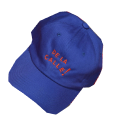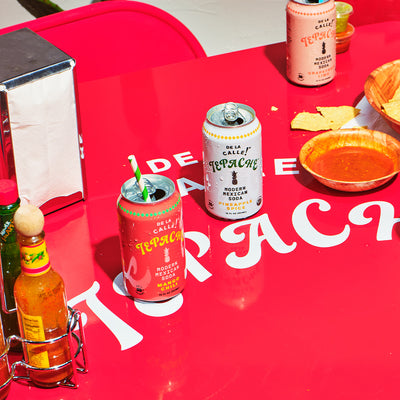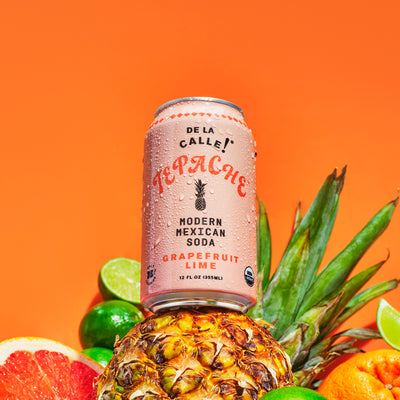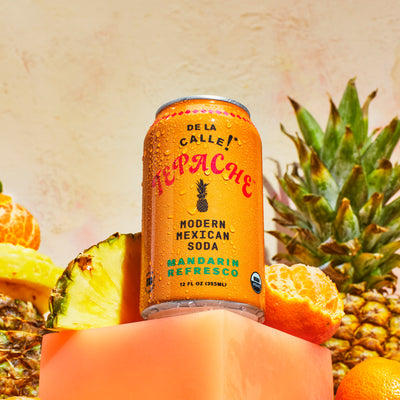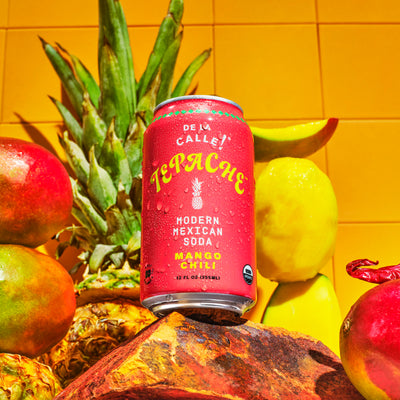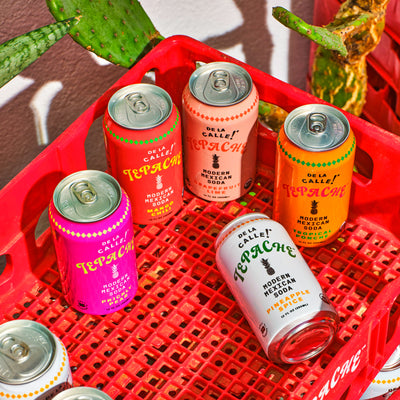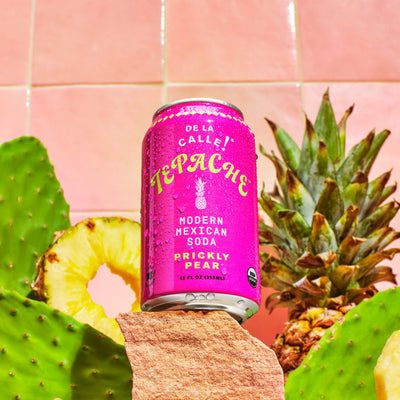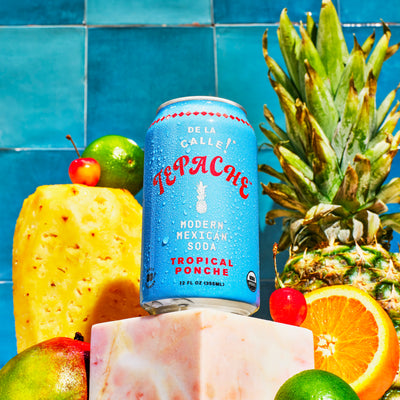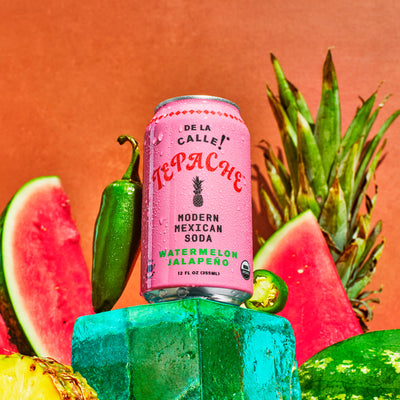Soda Alternatives You Never Knew About

Do you crave the sweet flavor and bubbly texture of soda but worry about how it affects your health? Do you want to find an alternative but worry that no other drink will have the same refreshing effect? If so, check out this article!
We’ll take you through all of the ways that soda can negatively affect your health. Then, we’ll take a close look at all of the delicious soda alternatives you never knew about.
What’s So Bad About Soda?
Before we dive into all the amazing soda alternatives available, let’s identify why soda is so bad for you. This section will examine a few of the numerous reasons why drinking soda regularly can be detrimental to your health.
Soda Won’t Make You Feel Full
The sugar that most people regularly consume contains either fructose or glucose. Glucose is the sugar found in starchy foods and can provide you with that feeling of being full. Fructose is a simple sugar that does not do anything to lower the hormone ghrelin in your body. Ghrelin is the hormone that signals hunger.
All that said, when you drink soda, you usually just add it on top of your daily caloric intake because it does nothing to curb your hunger. For this reason, the calories in soda are often considered “empty” calories.
Soda May Contribute to Weight Gain
Unsurprisingly, soda consumption is also closely related to weight gain. Many dieticians believe that sugary drinks like soda are the most fattening part of people’s diets today. Soda may cause weight gain because the fructose in soda can only be digested by your liver.
When you consume too much fructose, your liver cannot process it all and turns it into fat. Although most of the fat made in your liver is shipped to other parts of your body in your blood, some of it remains in the liver. If you routinely drink soda, there may be a buildup of fat in your liver which can lead to nonalcoholic liver disease.
Soda Can Lead To Insulin Resistance and Type 2 Diabetes
Another very serious negative health effect of soda consumption is that it can lead to insulin resistance and type 2 diabetes. Insulin is the hormone responsible for driving glucose out of your bloodstream and into your cells. The more soda you drink, your cells may become less sensitive or even resistant to the effects of insulin.
When this resistance develops, your pancreas has to make more insulin which causes a spike in insulin levels in your blood. This causes a condition known as insulin resistance which can then lead to type 2 diabetes and heart disease.
Soda Has Negative Effect on Dental Health
As you might have heard from your dentist, soda is terrible for your dental health. There are two acids in soda that are especially harmful. These acids are phosphoric acid and carbonic acid. They can make the environment in your mouth highly acidic, which may lead to tooth decay.
Additionally, the sugar in soda provides an easily digestible fuel source for the bad bacteria in your mouth. Combined with the acidic environment, soda creates the perfect conditions for dental decay.
Soda Has No Nutritional Value
Not only does soda have several negative effects on your overall health, additionally it has no nutritional value. Sugary soda has only sugar. It doesn’t contain vitamins, minerals, or fiber. For this reason, drinking soda only increases your daily sugar intake and adds unnecessary calories to your diet.
Soda May Be Addictive
One reason that it can be so hard to stop drinking soda is that it may be addictive.
Drinking soda may cause dopamine release in your brain. Dopamine is one of the chemicals responsible for making you feel pleasure. Your brain recognizes when activities release dopamine and seeks out those same activities in the future. For this reason, once you start drinking soda, it can be really difficult to stop.
What Are Alternatives to Soda?
Now that you know a bit more about all the harmful effects of soda consumption, you might be wondering: what can I replace soda with in my daily diet? Luckily, several delicious alternatives are flavorful, carbonated, and beneficial for your health.
Check out this section to learn more about some of our favorite soda alternatives.
Tepache
Arguably the best soda alternative available is tepache. Tepache is a carbonated beverage made from fermented pineapple rinds and flavored with various other fruits and spices. It is a perfect soda replacement because it is bubbly and sweet with a milder flavor than that of other fermented beverages.
Flavor aside, tepache is also a healthy beverage. The probiotic bacteria and prebiotic fiber found in tepache can give your digestive system a boost and help your immune system fight off various diseases and viruses. Tepache is also a natural source of several important vitamins and other nutrients.
Kombucha
Kombucha is another fermented beverage that is a fantastic choice for anyone looking to ditch soda.
Unlike tepache, kombucha is made from fermented tea. Given that it is not made from something naturally sweet, such as pineapple, kombucha tends to have a more sour, funky flavor than tepache. For this reason, it is often a good alternative for adults, but kids tend to prefer the milder flavor of tepache.
Coconut Water
Coconut water is a new beverage in the health food scene. Sometimes flavored with other fruits, coconut water is a great source of electrolytes and potassium.
Although both beverages come from coconuts, coconut water should not be confused with coconut milk. Coconut water comes from a young, green coconut and has the texture of water.
Mineral Water
Unlike soda, mineral water is carbonated and contains several essential minerals such as calcium, magnesium sulfate, and sodium sulfate. It also contains no calories, which means that it won’t unnecessarily add to your daily calorie intake.
If you like the texture of mineral water but find yourself missing the flavor of soda, add a splash of fruit juice to your mineral water. Juices such as orange juice, cranberry juice, and mango juice make the perfect addition to mineral water.
Iced Tea
Although it isn’t carbonated like soda, iced tea is just as refreshing and delicious. One of the best things about iced tea is that you can make it with any flavor of tea you prefer. For this reason, you can have everything from mint iced tea to black iced tea.
You can also choose a caffeinated tea to make your iced tea or one without caffeine which may be beneficial if you’re making iced tea for your kids.
Conclusion
Although it can be tempting to drink soda because it is sweet, flavorful, and bubbly, it can put your health at risk. Soda won’t make you feel full and can lead to weight gain. Additionally, regularly drinking soda can also lead to type 2 diabetes and poor dental health. In case you’re not fully convinced yet, soda is also addictive and has no nutritional value.
Luckily, several delicious soda alternatives exist. To curb your soda craving, you can try tepache, kombucha, coconut water, mineral water, or iced tea. Regardless of what you choose, remember that you never have to drink soda. There is a whole world of healthy alternatives waiting for you!
Fructose and NAFLD: The Multifaceted Aspects of Fructose Metabolism | NIH
